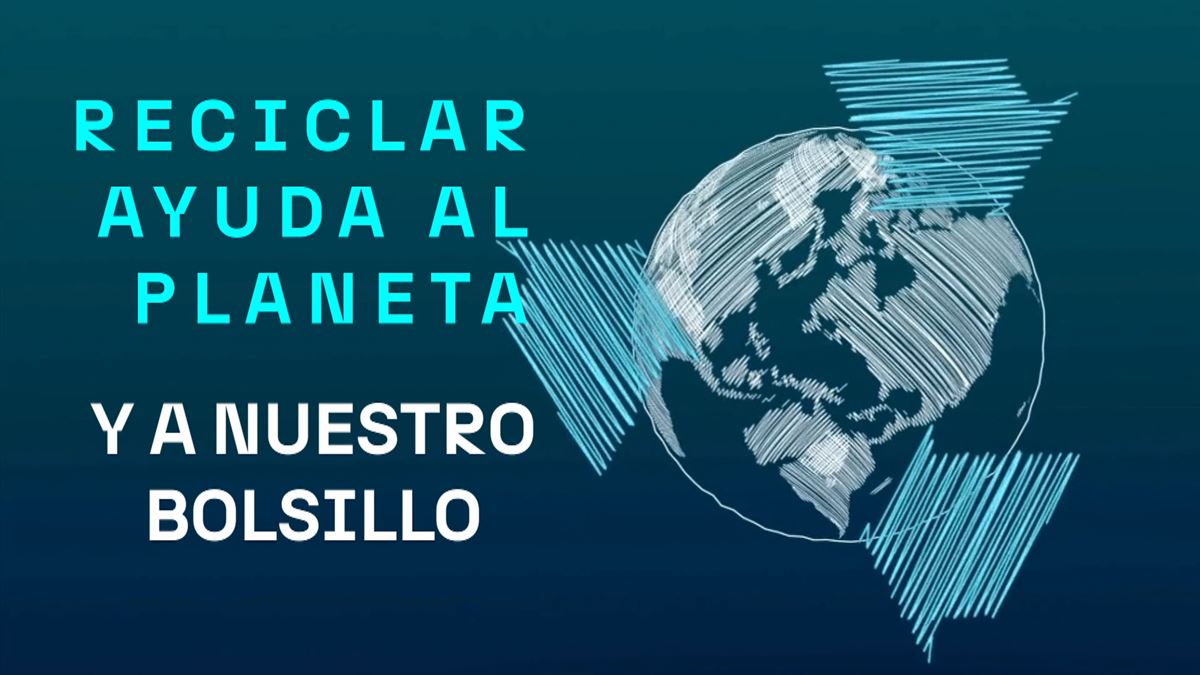According to European and Spanish regulations, waste management should have ‘no costs’ for public entities from April 2025, so the costs should be borne by citizens. Vitoria-Gasteiz has already announced an 85% tax increase.
Common Eider Garaikoetxea O. | EITB media
Almost all municipalities of the Basque Autonomous Community (CAV) and Navarra will submit an application risesin most cases important, in the waste rate in 2025 to comply with a European directive and national waste legislation. Both regulations require waste management to be “free” for public authorities (currently in deficit) and to be collected through taxes.
In this way it is up to the one who produces the waste to bear the costs, that is, he has to do it be paid by the citizens and businesses. Basque city councils are predicting an increase in tariffs to bring them into line with the real costs of waste collection and processing. The capital’s city councils have been the first to estimate the increases: so in Vitoria-Gasteiz will increase by a 85%while in Bilbao it will be 10%. San Sebastián City Council has not yet made the calculation, but Mayor Eneko Goia indicated that the deficit is 21%. Pamplona has also not specified any amounts.
In the BAC, the management of urban waste generally corresponds to local entities. The Association of Basque Municipalities Noble has set up a technical working group – made up of representatives from the three capitals and Eudel technicians – to analyse the issue. As Eudel sources explained to eitb.eus, it is “a discreet work”, as it is a “complex subject”, with “very different cases”. In fact, in several municipalities, in addition to the municipal councils, the administration also falls under the municipalities or Ecoembes themselves. The idea is to give the smaller municipalities a set of criteria so that they can set a tariff that is “what is really urgent”.
In the Foral community, waste management is the responsibility of the associations. The Commonwealth of the Pamplona Region has not made a decision at this time, as reported to eitb.eus.
Increases of the capitals
At the moment the most notable increase corresponds to Vitoria-Gasteiz. Until now, the city council has been responsible for 56% of the expenditure, which has resulted in very poor service provision. For example, it has announced an increase of around 40 euros (85%, from 58 to 104 euros), although it has also stated that this will apply tax credits for users who meet a minimum level of organic recycling. However, it still needs to approve the regulation on this point.
In Bilbao The increase will be less, 10%. So the average bill will rise to 135 euros (currently it is 132).
The municipal council of Saint Sebastian At the moment, it is not yet clear how much the increase will be, or whether or not there will be an adjustment to the real costs. As Mayor Eneko Goia pointed out yesterday, there is a 21% difference between the expenditure on collection and treatment and the income for this concept. “We still do not know how to comply with the regulations,” he admitted, adding that in the capital, Gipuzkoa, waste tariffs are discriminated according to the type of user and are linked to water consumption.
In Navarra, the associations are responsible for the management and processing of waste. Pamplona usually approves the rates in November, but until then it cannot quantify the increase.
Obligation established in 2018 in Europe and in 2022 in Spain
The increase in waste tariffs is, as we have said, a response to the regulations of the European Union and the Spanish government. The European Commission approved the Waste Directive six years ago. The State Law on Waste and Contaminated Soils for a Circular Economy came in 2022. Both follow the ‘polluter pays’ principle, and therefore they establish that the costs of waste management and treatment must be borne by the user who generates the waste. The State Law gave local entities a term of three yearswhich expires on April 10, 2025. The legislation requires municipalities to implement “payment per generation” systems that reflect real costs. It also urges the development of technology that makes it possible to quantify how much each user generates.
Several countries in the European Union have the most advanced task, as they have weighing systems that do not exist in Hego Euskal Herria.

Europar Batasuneko has a herrialdetan sorting system for hondakinak-planatzeko and a control technology that guarantees, baina Hego Euskal Herrian and the halakorik.
Source: EITB
I’m Wayne Wickman, a professional journalist and author for Today Times Live. My specialty is covering global news and current events, offering readers a unique perspective on the world’s most pressing issues. I’m passionate about storytelling and helping people stay informed on the goings-on of our planet.



